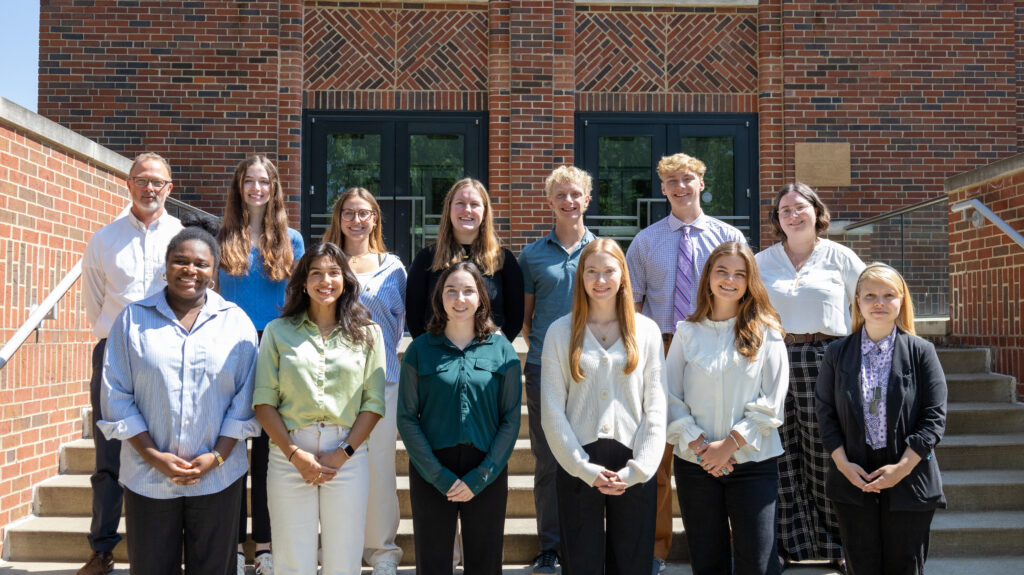Intern Insights is a mini-series that spotlights the interns participating in the Sustainability Internship Program (SIP) and their day-to-day activities and accomplishments. The Office of Sustainability partners with the Student Sustainability Council and sustainability-related units from across the University to provide exciting and meaningful undergraduate internship opportunities for UK students. Interns work with a mentor to support a specific sustainability-related unit on campus, develop an independent project, and participate in a professional development series with a full cohort of interns. We are excited to share the perspective of Holly Cason, one of our UK Recycling interns, as we explore the role sustainability plays in the student experience at the University of Kentucky.
When I first started my Sustainability Internship Program (SIP) position with UK Recycling, I chose composting as my focus with some hesitation. Of the three possible areas of focus for the Recycling interns to select from—recycling, reuse, and composting—it was the one I knew the least about. But that unfamiliarity drove me to select it, hoping to learn more about the composting process at a university scale as well as the effects on waste diversion. I understood the importance of food waste diversion, but I had never witnessed its impact firsthand in a professional context.
Food waste represents an unsustainable loss—economically, ecologically, and socially. It’s a waste of a critical resource, especially in parts of the world where food is scarce. On top of that, it contributes to ecological problems through methane emissions when it ends up in landfills. Composting helps reduce this waste and returns valuable nutrients to the soil, which supports both our food systems and natural ecosystems. Additionally, composting reduces the economic costs of landfill management and helps build climate resilience in communities. Seeing this cycle in action is what makes composting such a critical part of sustainability efforts.
The SIP has offered me a context that blends education with professional development with this area of focus. The previous UK Recycling intern who focused on composting, Elizabeth Hellmann, conducted a study assessing interest in food waste diversion among students, faculty, and staff. Her work provided valuable data that continues to inform future programs. Building off Elizabeth’s research has been a key part of my experience, and it has helped shape my independent project.
My project aims to expand food waste diversion to UK staff and faculty by extending the existing drop-off operations from residential spaces to campus offices. It’s an exciting opportunity to advance the university’s sustainability initiatives by diverting more food waste from landfills and fostering greater engagement in sustainability practices.
In addition to my independent project, I have other responsibilities that help me stay connected to the practical side of composting. I regularly evaluate participation in food waste collection at retail locations around campus. This involves talking with retailers, learning what’s working for them, and gathering feedback. This input has been really valuable, and I’m using it, along with future assessments of residential composting, to help shape my project. Factors like motivation and accessibility play a big role, and they’ll help me ensure that the project has a lasting impact.
I also meet weekly with the reuse and recycling interns, as well as our supervisor, Ryan Lark, to discuss UK Recycling’s broader impact. These conversations have given me a better understanding of how our individual focus areas contribute to sustainability at the university. Together, we’re working toward the larger goal of becoming a zero-waste campus by 2030, a goal requiring a 90% diversion rate.

